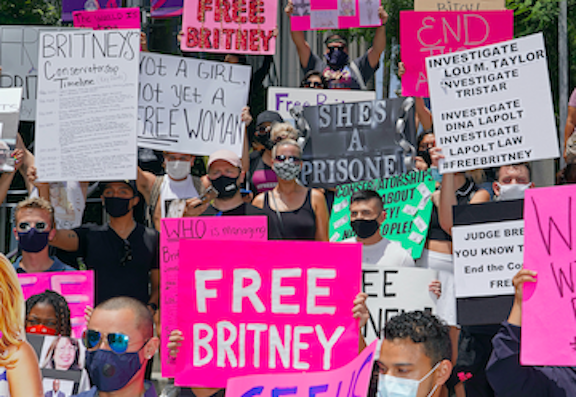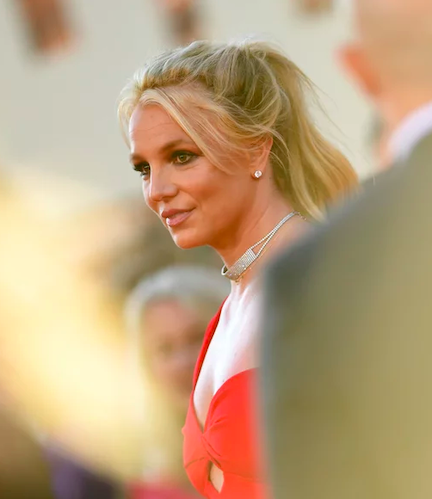Rethinking Britney: Protection or Patriarchy
Issue 170 — June 28, 2021
My weekly zoom with women friends who have been staying in touch through the pandemic recently focused on how hard it is to get old ideas and solutions out of their heads when a new and better one has been proven more effective.
The examples mostly came from the world of science and medicine, starting with Dr. Ignaz Semmelweis who was hounded out of the medical profession in the 19th century. Dr. Semmelweis observed that simply washing hands after treating other patients could significantly reduce maternal mortality. Despite a growing body of scientific papers that backed up his theory, most physicians refused to change their traditional practices, and eventually had Semmelweis committed to an institution where he died.
And then there is the pervasive gender gap in leadership despite data clearly showing that companies with more women in leadership are more profitable. Both men and women are more likely to think “man” when asked to describe a leader.
Old ideas and patterns about leadership get stuck in our heads. Ideas about what a leader looks and acts like were shaped by patriarchal culture and became ingrained even though there is no basis in science, only in a power structure that created gendered beliefs, and literally created how we think about gender itself.
Perhaps these factors are why it was apparently so easy for the general public to absorb as truth, to the extent people even thought about it at all, that singer and actress Britney Spears needed to be under father’s conservatorship starting in 2008 when she was 27 years old.
As a teenager and young woman, Britney was objectified and commodified, rewarded for fulfilling a male fantasy of a girl who is both sexual and infantile. I vaguely recall Spears’ rise as a teenage idol by age 16 and her downward spiraling personal life in the years after that.
Britney Spears, age 18, on the cover of Rolling Stone in 1999.
It was as easy to be judgmental about her seeming string of bad personal decisions as it was to be turned off by her hypersexualized baby doll persona. That was the public narrative that overlooked her private pain. And it was the cultural narrative that framed the assumption that transferring control of her life, her earnings, her career, and even her reproductive decisions to her father with whom she had a rocky relationship at best, was in her best interest.
Now at age 39, Spears is seeking to end that conservatorship. A movement with its own hashtag #FreeBritney has emerged. And slowly, yet seemingly suddenly, minds are opening to a very different perspective.
#FreeBritney protestors at a 2020 rally in LA. Photo: VICE.
Was she being protected by the conservatorship or was she gaslighted and victimized by a patriarchal culture?
The so-called natural order is always defined by those holding more power and privilege. Which doesn’t mean those with less power always see or oppose the injustice, or feel that they are empowered to do something about it. That’s why often you have to be able to change your own mind first, before you can start to change how others are thinking about you.
And Britney is breaking out now, challenging the status quo in court with a lengthy speech on her own behalf. Some excerpts as related in The Atlantic:
“I have the right to use my voice,” she said. “It’s not fair they’re telling … lies about me openly … My own family doing interviews, and talking about the situation and making me feel so stupid. And I can’t say one thing.”
“I’ve lied and told the whole world ‘I’m okay, and I’m happy,’” she said. “I thought … maybe if I said that enough, maybe I might become happy, because I’ve been in denial. I’ve been in shock. I am traumatized. You know, fake it ’til you make it. But now I’m telling you the truth, okay? I’m not happy. I can’t sleep. I’m so angry, it’s insane. And I’m depressed. I cry every day.”
Placards left by #FreeBritney activists outside the courthouse where Britney Spears testified June 23, 2021. Photo: The New York Times.
A significant part of that anger and depression has to do with losing agency over her body and her ability to determine whether to have a child. She claimed in her testimony that she wasn’t allowed to get her IUD removed. This fact alone shocked many people, especially women, to respond in horror in a viscerally personal way, as noted in The Lily.
Helaine Olen wrote in the Washington Post:
“This is no mere paternalism. It’s a violation of human rights. And it’s downright creepy.
Now think of the countless male stars who’ve engaged in public instances of crazed, drug-addicted or emotionally disturbed behavior…Then there’s Spears’s father, Jamie — a man so ragingly inappropriate, Spears’s ex-husband sought and received a restraining order to keep him away from his and Britney’s two sons.”
In his book, Thinking Fast and Slow, Nobel Prize winning psychologist Daniel Kahneman lays out in detail how we resist new information once knowledge is learned and opinions are formed. A woman finding her voice based on new knowledge that she has learned is not a new story. It’s a path, a coming of age that many women traverse on the way to claiming their power as an internal source of strength rather than something bestowed upon them. Yet only in so doing are we freed to clarify and set forth to achieve our authentic intentions.
Britney Spears at a movie premier in 2019. Photo: NPR.
While the final chapter in the Britney Spears saga is yet to be written, and there are likely to be unpredictable twists and turns ahead, her story of how she uncovered her true self is helping to break open deeply ingrained cultural biases and rewrite the narrative of what is truly beneficial protection and what is merely another example of patriarchal control.
GLORIA FELDT is the Cofounder and President of Take The Lead, a motivational speaker and expert women’s leadership developer for companies that want to build gender balance, and a bestselling author of four books, most recently No Excuses: 9 Ways Women Can Change How We Think About Power. Former President of Planned Parenthood Federation of America, she teaches “Women, Power, and Leadership” at Arizona State University and is a frequent media commentator. Learn more at www.gloriafeldt.com and www.taketheleadwomen.com. Tweet Gloria Feldt.





